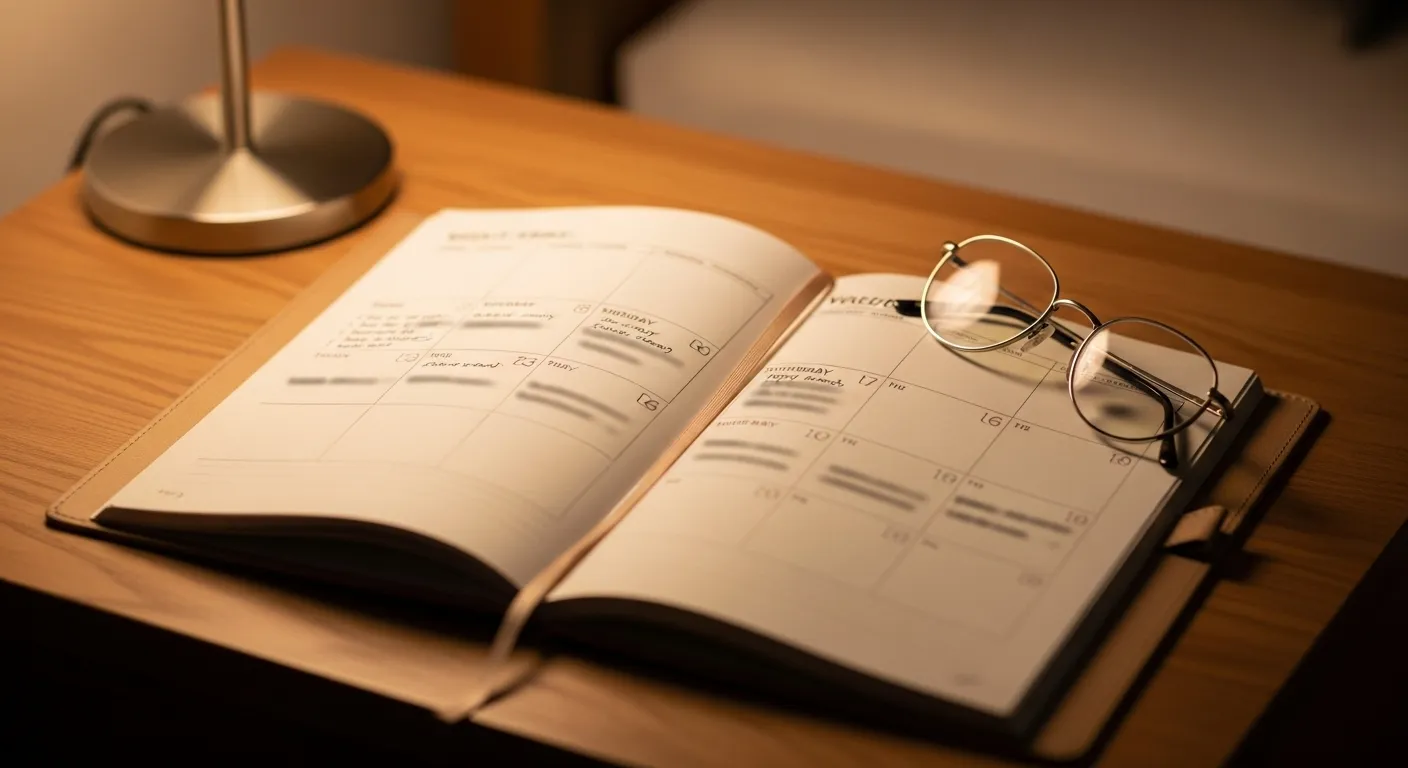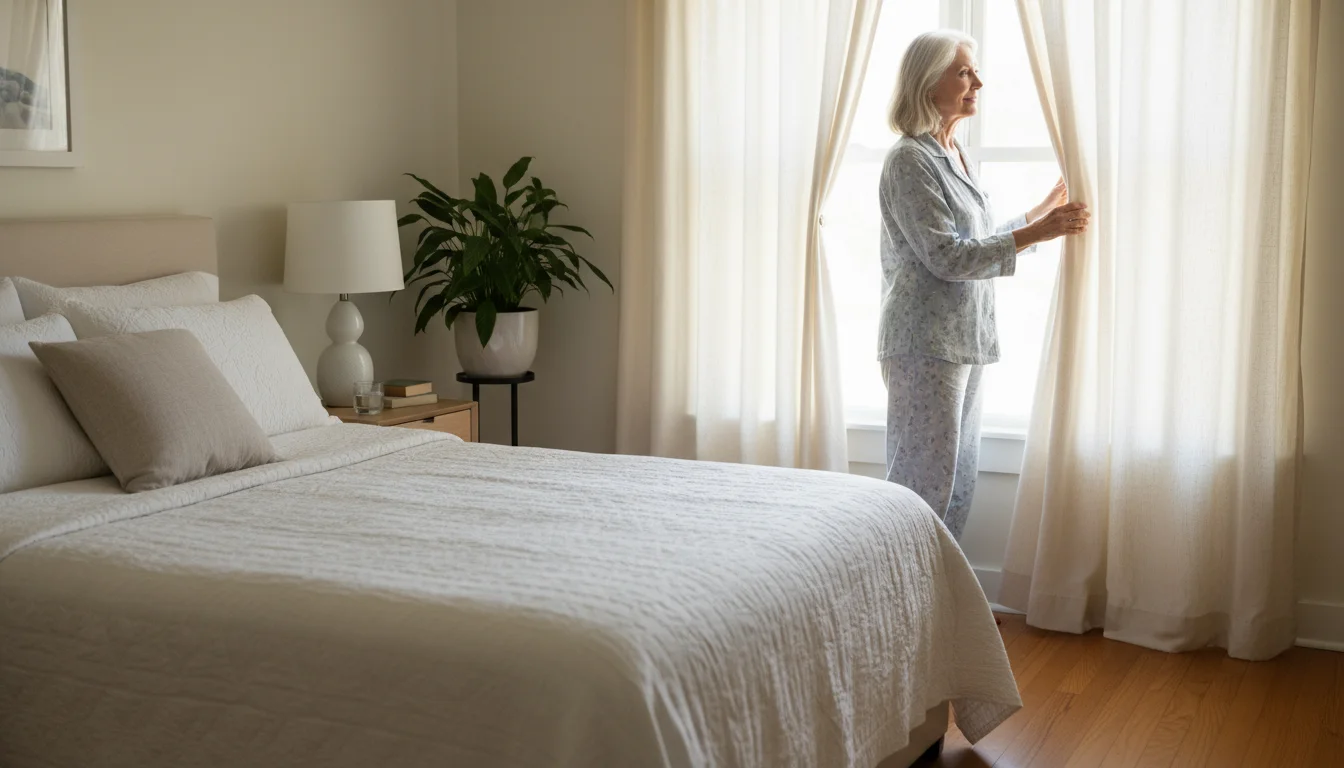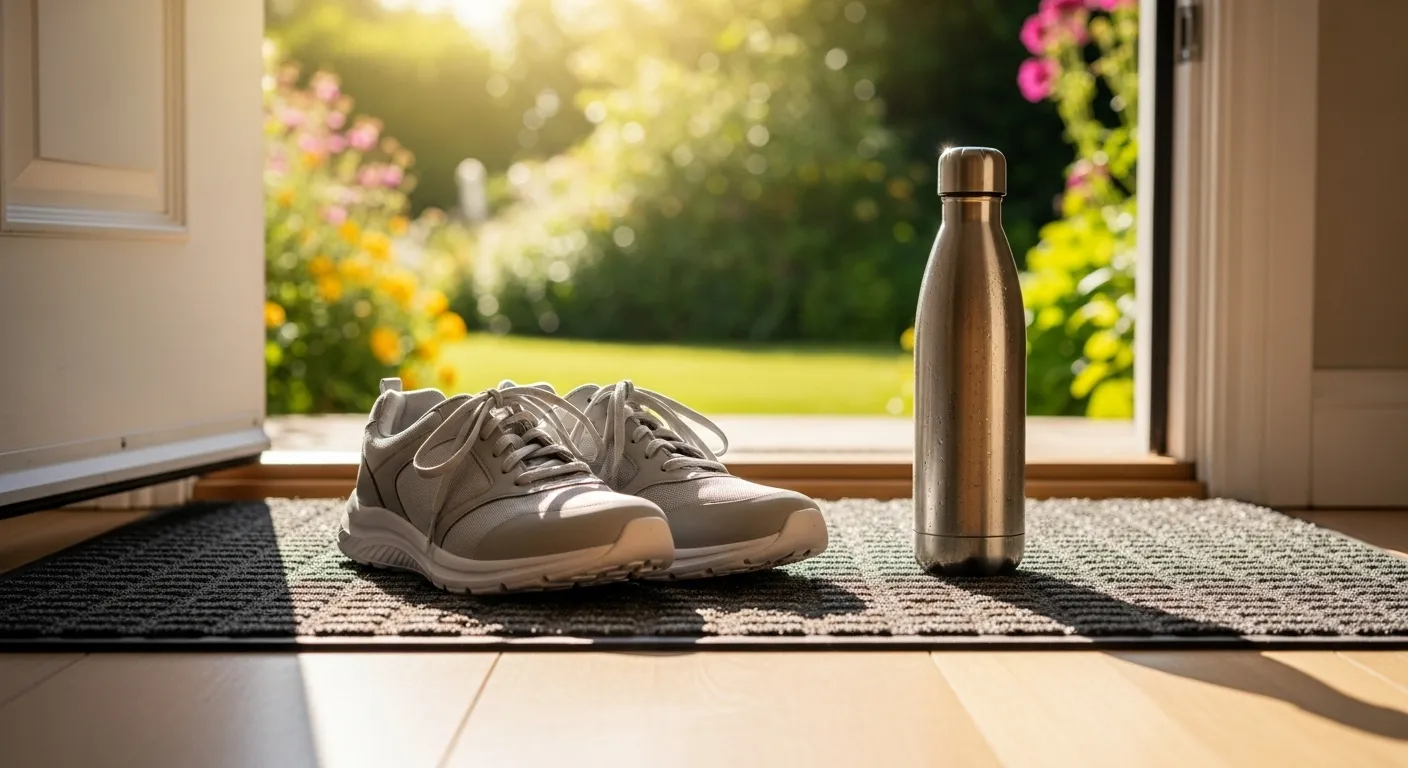
A Step-by-Step Guide to Building a Better Sleep Routine Safely
Creating a healthy sleep routine is about sending consistent signals to your body and brain that it’s time to wind down and rest. This doesn’t happen overnight, but with patience and a few simple adjustments, you can pave the way for more restful nights. Here are safe, practical steps you can take.

1. Set a Consistent Sleep Schedule
Your body has an internal 24-hour clock called the circadian rhythm, which thrives on consistency. Going to bed and waking up at the same time every day—even on weekends—is the single most important step you can take to regulate this clock.
- Choose Your Times: Pick a bedtime and wake-up time that allows for 7-9 hours of sleep.
- Stick to It: Try to stay within a 30-minute window of these times each day. If you stay up late one night, it’s better to get up at your usual time the next morning rather than sleeping in, as this helps reset your clock faster.

2. Create a Relaxing Bedtime Ritual
A bedtime ritual is a set of activities you do in the 30-60 minutes before bed to signal to your body that it’s time to transition from an active state to a restful one. This ritual should be calming and enjoyable.
- Unplug from Screens: The blue light from TVs, computers, tablets, and smartphones can suppress melatonin, the hormone that controls your sleep-wake cycle. Turn them off at least an hour before bed.
- Take a Warm Bath: A warm bath or shower can be very relaxing. The subsequent drop in your body temperature after you get out also helps trigger sleepiness. Be sure your bathroom is safe with non-slip mats to prevent falls.
- Read a Book: Choose a physical book or an e-reader without a bright backlight. Avoid thrillers or suspenseful stories that might be too stimulating.
- Listen to Calming Music or an Audiobook: Soft, instrumental music, nature sounds, or a soothing audiobook can help quiet a busy mind.
- Practice Gentle Stretches or Deep Breathing: Simple, gentle stretches can relieve muscle tension. Deep breathing exercises—inhaling slowly through your nose and exhaling slowly through your mouth—can calm your nervous system. Always check with your doctor before starting any new physical activity.

3. Optimize Your Bedroom Environment
Your bedroom should be a sanctuary for sleep. This means making it cool, dark, quiet, and comfortable. These are powerful insomnia solutions that cost nothing.
- Keep It Cool: Most people sleep best in a cool room, typically between 60 and 67 degrees Fahrenheit.
- Make It Dark: Use blackout curtains, shades, or an eye mask to block out light. Even small amounts of light from streetlamps or digital clocks can disrupt sleep.
- Ensure It’s Quiet: If noise is an issue, consider using a fan for white noise, earplugs, or a white noise machine to drown out disruptive sounds.
- Reserve Your Bed for Sleep: Avoid working, eating, or watching TV in bed. This helps your brain associate your bed with sleep and intimacy only.

4. Pay Attention to Daytime Habits
What you do during the day has a significant impact on how well you sleep at night.
- Get Some Sunlight: Exposure to natural light, especially in the morning, helps keep your body’s internal clock on a healthy sleep-wake cycle. Try to spend at least 15-30 minutes outdoors each morning.
- Be Physically Active: Regular physical activity can promote deeper sleep. However, try to avoid strenuous exercise within three hours of bedtime, as it can be stimulating. A gentle walk after dinner is a great option.
- Watch What You Eat and Drink: Avoid large meals, caffeine (from coffee, tea, soda, and chocolate), and alcohol close to bedtime. Caffeine can stay in your system for many hours. While alcohol might make you feel sleepy at first, it disrupts sleep later in the night. A light, healthy snack like a banana or a small bowl of oatmeal is a better choice if you’re hungry.
- Be Smart About Naps: If you need to nap, try to keep it short (20-30 minutes) and take it in the early afternoon. Napping for too long or too late in the day can interfere with your ability to fall asleep at night.










Leave a Reply